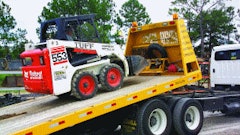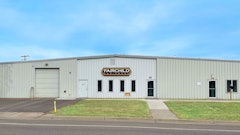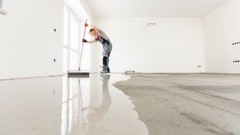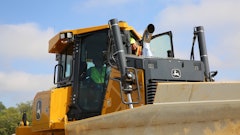
Within the last two weeks, I have had the pleasure of listening to three very good analysts who all agreed on one thing — if the fiscal cliff is not dealt with by the end of this year, the construction recovery could get pushed out to 2015-16. According to their thinking, if the issue is not resolved by December 31, Congress will just kick the can down the road and not get around to taking action until late next year, thus extending the uncertainty that is holding up a lot of potential economic activity.
Following their suggested time frame, there are only seven weeks available post- election to resolve the issue. While it doesn’t seem feasible to me, maybe the lame duck members of the House and Senate will have the guts to avoid the politics and do what is right for the country. But don’t hold your breath.
Maintain the Status Quo
Based on this scenario, I believe contractors have to keep their cards close to the vest and move forward in a conservative manner. And, as I’m sure you understand, being conservative means keeping fixed costs down by avoiding new debt service commitments no matter what they are for. In other words, maintain the status quo, which for most of you means keep the business lean; for those in hot market areas, it means “watch your back” even if business is good at the moment.
This conservative approach is being reflected in rental industry stats. The rental industry has seen a double-digit increase in revenues around the country. Contractors are using rental to outsource risk while maintaining the flexibility they need to keep costs down.
To me, this phenomenon will evolve into a permanent paradigm shift, in which rental will become the standard regarding for equipment utilization in the U.S. Heck, in the UK, 80% of the equipment on a jobsite is rented, with many of the units rented with an operator.
What’s interesting about this rental phenomenon is the fact that 80% of renters do not specify a brand when renting. I guess the knowledge that a unit will be replaced or repaired on someone else’s nickel means you don’t need to request a brand you would normally buy to avoid downtime. Knowing the rental companies have the same goal in mind (to avoid your downtime) provides a sense of security. All you have to worry about it getting the equipment utilization needed to get the job done, regardless which brand is being supplied.
That said, these “non-specific” rental transactions are causing concern in the equipment dealer channel. If renters do not specify brand when renting, it will be tough to keep current customers once they turn their current equipment inventory over and follow the trend to rent more in the future.
Don’t Get Caught in the Learning Curve
As equipment sales fall, more dealers are getting into the rental business — or at least they think they are.
A number of large dealers have separate rental operations with a wide array of equipment available for rent. In these circumstances, you can get most of what you need for a job and kind of enjoy one-stop shopping.
The dealers just getting into the rent-to-rent business are another story. They have to reinvent their business model to cope with the nuances of the rental business. If they don’t, it will be the contractor that bears the burden of the dealer’s conversion problems.
There is no doubt that dealers going from a rent-to-sell business into a rent-to-rent business have a steep learning curve. It’s tough to get a company that is used to selling $200,000 units to understand and meet the rental operating requirements of a $3,500 a month rental.
If you feel you are in this situation, take steps to stay ahead of the curve to make sure the rental unit you need is in stock and will be delivered when you need it. Make the time to stay in touch with the dealer to ensure the units will be available when promised.
As this industry moves forward, I see contractors only owning the specialty equipment they need and renting the rest. I agree that the rental industry will disrupt the equipment distribution channel. What do you think?
Remember — close to the vest until the industry really turns around.
Garry Bartecki is the managing member of GB Financial Services LLP and VP Finance for the Associated Equipment Distributors. He can be reached at (708) 347-9109 or [email protected].




























